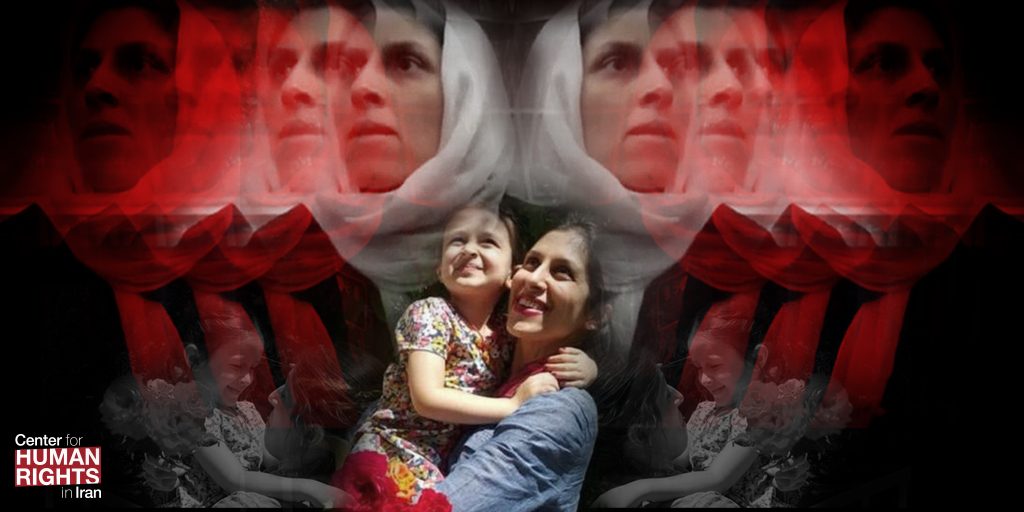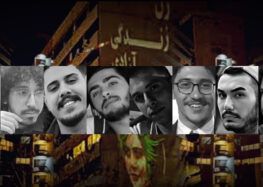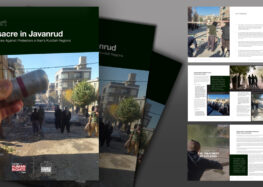Zaghari-Ratcliffe Transferred to Psychiatric Ward, Held Incommunicado
 Revolutionary Guards Blocking Outside Contact, Says Free Nazanin Campaign
Revolutionary Guards Blocking Outside Contact, Says Free Nazanin Campaign
Imprisoned Iranian-British citizen Nazanin Zaghari-Ratcliffe has been held in the psychiatric ward of the Imam Khomeini Hospital in Tehran since July 15, 2019, according to the Free Nazanin campaign.
Throughout this time she has been denied contact with her family and guarded by agents of the Islamic Revolutionary Guard Corps (IRGC).
“I was healthy and happy when I came to Iran to see my parents,” said Zaghari-Ratcliffe prior to her hospitalization, according to a statement by the Free Nazanin campaign dated July 16, 2019. “Three and a bit years later and I am admitted to a mental health clinic.”
Zaghari-Ratcliffe, who has been imprisoned in Iran on unspecific espionage charges since April 2016 after being arrested by the IRGC’s intelligence organization, had requested hospitalization on the recommendation of a doctor for the severe mental and physical deterioration she has experienced while held in Evin Prison, according to the campaign.
However, her requests to maintain contact with her five-year-old daughter and parents, both based in Tehran, as well as her London-based husband, were not honored after she was taken to the hospital.
Her father was denied contact with her on July 16 and was unable to establish what treatment she has been receiving, or the IRGC’s agenda in being involved in her medical care.
Zaghari-Ratcliffe’s transfer to the hospital comes on the heels of the two-week-long hunger strike she and her husband, Richard Ratcliffe, both undertook in June 2019.
“Nazanin hoped that her hunger strike would move the Iranian authorities, and it clearly has,” said Ratcliffe in the Free Nazanin campaign statement that was sent to the Center for Human Rights in Iran (CHRI).
“Hopefully her transfer to a hospital means that she is getting treatment and care, despite my distrust of just what pressures can happen behind closed doors,” he added. “It is unnerving when we don’t know what is going on.”
Her family is concerned about a potential “cocktail of drugs and treatments that might be used in coordination with ongoing pressures on Nazanin to sign or film something,” said the Free Nazanin Campaign.
During the second week of her hunger strike, IRGC agents had threatened Zaghari-Ratcliffe with more imprisonment and pressured her to spy for Iran upon being freed, as well as write a denouncement of the British government, noted the campaign.
Requests that Zaghari-Ratcliffe be allowed contact with her family members or a representative of the British embassy in Tehran have been denied.
On July 10, the UN listed Zaghari-Ratcliffe among a group of prisoners in Iran who have been repeatedly denied adequate medical treatment.
“Over several months we have communicated to the Iranian government our deep concerns about the physical and mental integrity of detainees,” UN experts said in a statement.
“Despite government assurances, we are frustrated to still receive reports of denial of medical treatment, including in life-threatening situations,” they added. “These no longer appear to be isolated incidents, but a consistent pattern.”
Zaghari-Ratcliffe has been requesting medical treatment to be administered outside the prison since January 2019, when she went on a joint hunger strike with imprisoned human rights defender Narges Mohammadi.
Both women are held in the Women’s Ward of Evin Prison, where the infirmary is dirty and lacking in supplies and medical specialists.
Now Zaghari-Ratcliffe has been denied access to her loved ones while held incommunicado in a hospital. To date, her family has never been allowed to see her medical records despite frequent requests, according to the campaign.
“Even now it still seems like games of power and control are being played by the Iranian authorities – even at the point of hospitalization,” said Ratcliffe.
An employee of the London-based Thomson Reuters Foundation charity, Zaghari-Ratcliffe has been eligible for release since November 2017 based on Article 58 of Iran’s Islamic Penal Code, which states that courts can issue an order of conditional release after a convict has served one-third of their sentence.
In July 2018, a judge reportedly told Zaghari-Ratcliffe that she was being held as a bargaining chip by the Iranian government to convince London to pay Tehran an old debt.





